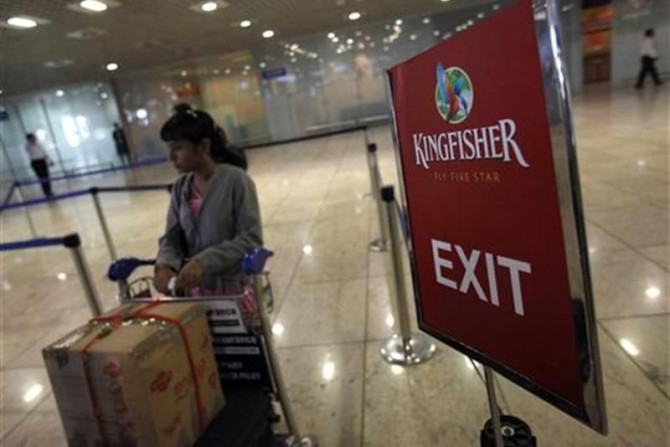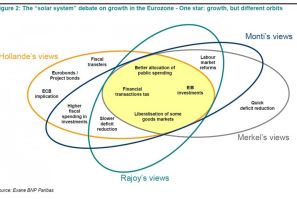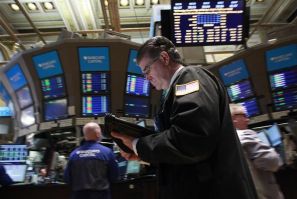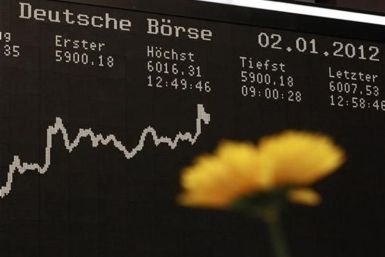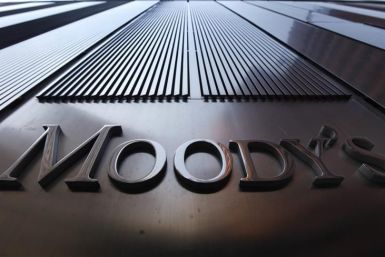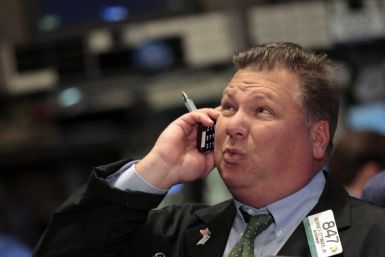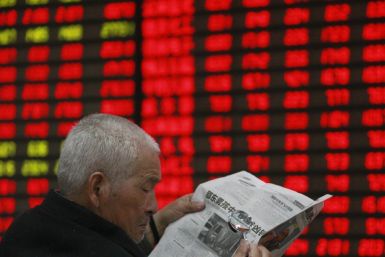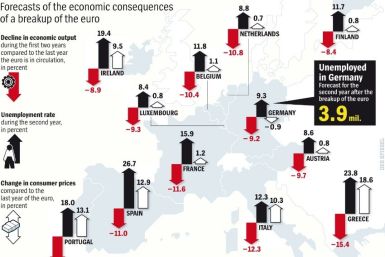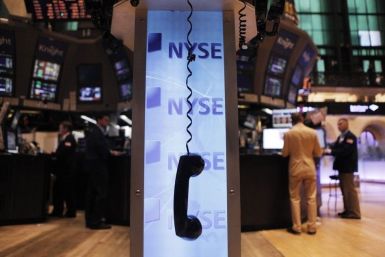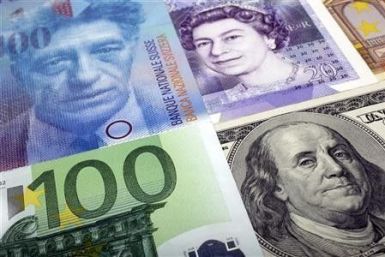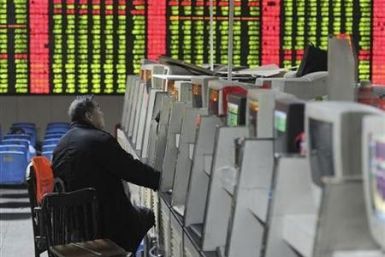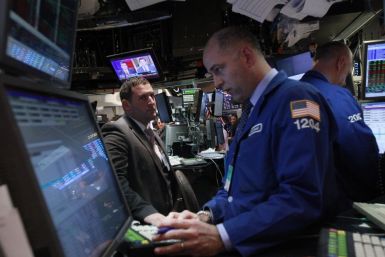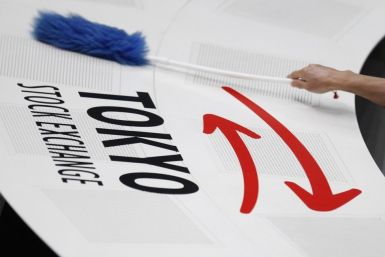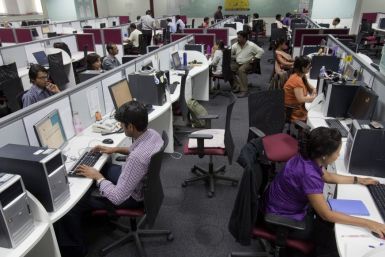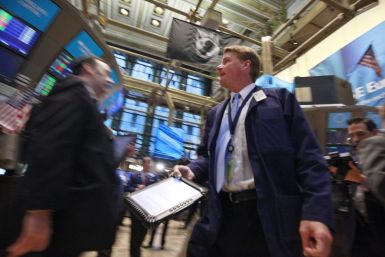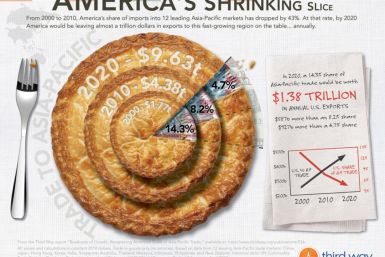European markets rose Tuesday after sell off in the previous day, but investors remained watchful about the debt crisis lingering over the euro zone.
Crude oil futures declined during Asian trading hours Tuesday as sentiment was dampened on concerns that faltering global growth could lead to lower oil demand.
Moody's Investors Service Monday downgraded the long-term debt and deposit ratings of 28 Spanish banks, indicating that the credit worthiness of Spain is weakening.
The top after-market NYSE gainers Monday were: Health Management Associates, Ferro Corp, McClatchy Co, Greenhill & Co and Generac Holdings. The top after-market NYSE losers were: Harbinger Group, BPZ Resources, Regional Management, Fidelity National Financial and Rogers Communication.
Most Asian markets fell Tuesday as investor sentiments continued to be dragged down by concerns over the debt crisis looming over the euro zone.
Moody's Investors Service on Monday downgraded the long-term debt and deposit ratings for 28 Spanish banks and two issuer ratings, following on the heels of a cut to Spain's sovereign rating to just above junk status earlier this month.
A graphic published by Der Spiegel, Germany's top newsweekly, is making the rounds among global financial blogs and Facebook walls, succinctly putting into numbers the horrific economic carnage a collapse of the common currency union would entail.
New single-family home sales grew by 7.6 percent from April to a seasonally adjusted annual rate of 369,000 in May, the Commerce Department said Monday. The increase was much stronger than the 346,000 analysts polled by Reuters had forecast and was the highest since April 2010.
Fitch Ratings downgraded Cyprus' government debt status on Monday with a negative outlook, making the agency the last of the big three agencies to lower the island nation's sovereign credit rating.
Teva Pharmaceutical Industries, Intel Corp, Watson Pharmaceuticals, Cellcom Israel, Nokia Corp, Banco Santander, Deutsche Bank and Microsoft Corp are among the companies whose shares are moving in pre-market trading Monday.
U.S. stock index futures pointed to a lower opening Monday as investors continued to worry about the debt crisis in the euro zone and the faltering global economy.
Asian stock markets mostly declined Monday as fears of a further global slowdown and economic headwinds from the euro zone continued to weigh on the sentiment.
European markets fell Monday as investors remained concerned about the debt crisis lingering over the euro zone.
Crude oil futures advanced Monday as U.S. companies shut down nearly a quarter of oil and natural gas production in the Gulf of Mexico because of the intensifying weather caused by Tropical Storm Debby.
Most Asian markets fell Monday as investor sentiment continued to be dragged down by concerns over the looming debt crisis in the euro zone.
Five years into the most significant global financial crisis since the 1930s, the world's leaders have formulated neither the fiscal policies nor the monetary policies required to deal with it, according to the Bank for International Settlements' 82nd Annual Report, which was released Sunday.
The market sentiment is likely to remain subdued in the coming week as increasing expectations of a further global slowdown and economic headwinds from the euro zone will continue to weigh.
An inch of time is an inch of gold, but you can't buy that inch of time with an inch of gold. Does this Chinese proverb ring true in the case of Indians who invest in gold for a 'good time' tomorrow? Or is the craze for the yellow metal ruining the country's economy?
The top after-market NYSE gainers Friday were: Teva Pharmaceutical, Lloyds Banking Group, Thompson Creek Metals Company, St. Jude Medical and Flotek Industries. The top after-market NYSE losers were: Hovnanian Enterprises, MGIC Investment Corp, Astrazeneca Plc, Tejon Ranch and 3D Systems Corp.
Most Asian markets fell this week as investors were worried after the U.S. Federal Reserve refused to announce a further round of quantitative easing and the HSBC Flash Purchasing Managers Index (PMI) indicated that China's manufacturing activity was faltering.
The Amazon.com Inc. launch of AmazonSupply in April indicates the shift to online from offline commerce continues apace among industrial consumers, which increasingly prefer to buy goods electronically.
A list of winners and losers in the world of business and economics for the week of June 17.
While coal has powered the 19th-century Industrial Revolution, heated homes and generated electricity, the era of King Coal has come to an end.
Walgreen Co. (NYSE: WAG), the largest U.S. drugstore operator, is facing challenges it has never seen in its 111-year history, and this week it responded to those challenges with a high-stakes strategic move.
Forget the currency crisis: On Thursday, the Euro that counts is the soccer championship, pitting Germany versus Greece in the quarterfinals. Rarely in history have sport, politics and economics mixed so deeply.
The European Central Bank said Friday it was easing the collateral rules on certain asset-backed securities currently pledged by banks as backing for ECB loans. Specifically, the bank will accept lower-quality securities as collateral for loans made to banks without demanding higher cash collateral, as had been the case in the past.
Suicide now ranks as the second leading cause of death among Indian youth.
Harvest Natural Resources, Sony Corp., Morgan Stanley, Banco Santander, Deutsche Bank, Jack in the Box, Statoil and IHS Inc. are among the companies whose shares are moving in pre-market trading Friday.
South Asian taxi drivers not only have a very hard and thankless profession, but they are caught in a vortex of prejudice in which they are both the victim and perpetrators of racism and discrimination.
Four years ago, for every five shipping containers that Asia sent to the U.S., America sent back only two, resulting in gluts of empty containers at U.S. West Coast ports and a widening trade deficit with countries like China and Japan.


